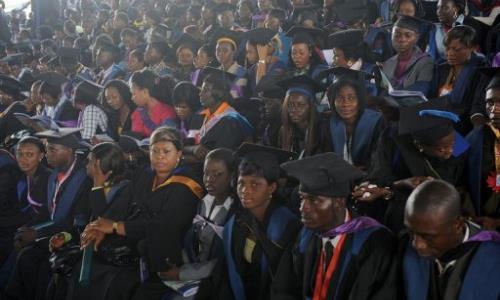If you’re a student in any Nigerian higher institution of learning, you must have heard of the term SIWES (Students Industrial Work Experience Scheme). SIWES has become so popular that most students now simply call it ‘Industrial Training’.
Every year, Nigerian students are made to leave their schools and choose a company or institution of their choice where they can work and gain practical knowledge of what they have been theoretically thought about in class. This is to further broaden their knowledge and skills in their chosen fields of study.
READ ALSO: NNU Income Program Review: All To Know Before You Put Your Money
Why SIWES Came About
In the 1960s and early 1970s, concerns began to mount about the fact that Nigerian students were not gaining practical knowledge and experience of what they were being though theoretically in their schools. The students were just gaining theoretical knowledge about their chosen fields of study and were not getting practically equipped to shine when they leave school.
This concern led to the establishment of the Students Industrial Work Experience Scheme (SIWES). The scheme was introduced in 1973/74. It was supposed to give the students some added practical knowledge to what they already know theoretically.
The establishment of SIWES was a very welcome development which signaled the beginning something groundbreaking across Nigerian institutions of higher learning.
A Compulsory Affair
SIWES has now become very compulsory across Nigerian institutions of higher learning. There is no way you can pass through a Nigerian University, Polytechnic or College of Education without taking part in the Students Industrial Work Experience Scheme. It has become one of the conditions to be fulfilled before one can successfully graduate from school.
Nigerian students are told, right from the start of their schooling, about the necessity of SIWES ans what it means to them.
The Duration Of SIWES
The duration of the Students Industrial Work Experience Scheme varies. For university students, it usually lasts for just 6 months. However, for Polytechnics and Colleges, SIWES takes up to an entire year.
Students are warned to take the scheme very seriously because it is graded and will reflect on their overall CGPA at the end of the day.
The Aims And Objectives Of SIWES In Nigeria
We will tell about the aims and objectives of the Students Industrial Work Experience Scheme presently. See below:
1. The scheme has been introduced to help in providing Nigerian students with the avenue to go out and acquire the necessary industrial skills and experience needed during their course of study in school.
With SIWES, students of Nigerian institutions of higher learning can become more more knowledgeable in not just the theoretical aspects of their areas of study but in the practical aspect as well, thereby making them completely grounded in their work.
2. This laudable scheme has been introduced with the aim of getting students adequately prepared for the work situation they are going to meet after they have graduated from school.
Because they now have practical knowledge and experience of what they have been taught in school, Nigerian students can go out and squarely face the work they have to do after graduation in familiar terrain, having trod on the same path during SIWES.
3. The scheme has been introduced to expose the many students in Nigerian institutions of higher learning to all the work methods in their fields of study. For instance, Mass Communications students get to work in an actual TV or radio station and so get acquainted with all the work methods in that field.
The students also get familiar with the various exciting techniques in handling the different machinery and equipment that are not readily available for them to use in their schools.
4. The scheme has been introduced to help Nigerian students easily transition from their university, polytechnic or college world to an actual work environment.
When students go to take part in SIWES, they get accustomed to what the real work environment looks like and so when they graduate from their institutions of higher learning, they find it a lot easier to transition into the world of work because of the experience they have already had while working during industrial training.
5. The scheme has been introduced to make it a lot easier for students to get contacts for job placements later on upon graduation.
When students go to take part in SIWES, they meet different people who occupy some high positions and who can help them later on after graduation to land jobs. Smart students use this opportunity to get all the necessary contacts they can get while at their industrial training and this makes it simpler to find the jobs they need when they come out of school to seek them.
6. The scheme has been introduced to help students bridge the gap between theory and actual practice. This is because they are sent to places where they are given the opportunity to apply the theoretical knowledge they already have in actual, real work situations and thus become more grounded in their fields of study thereafter.















